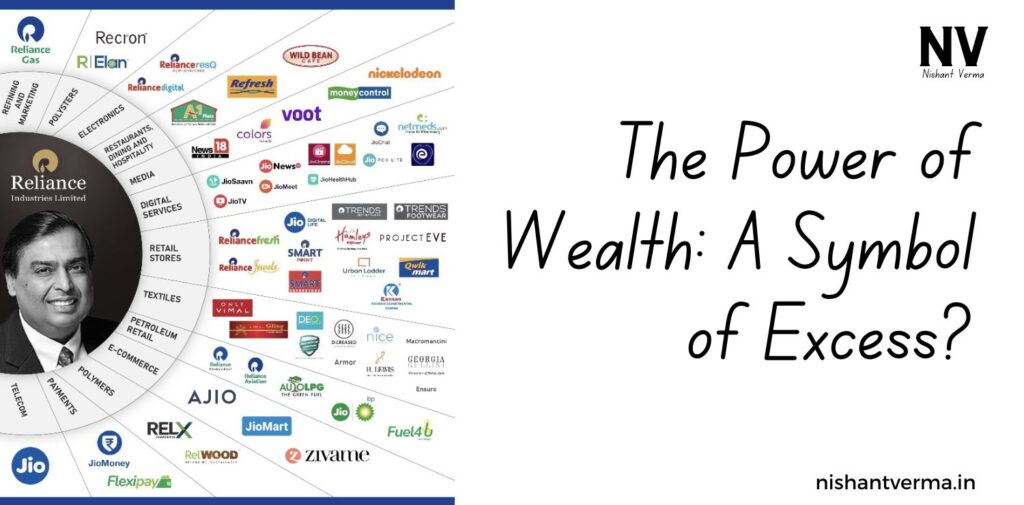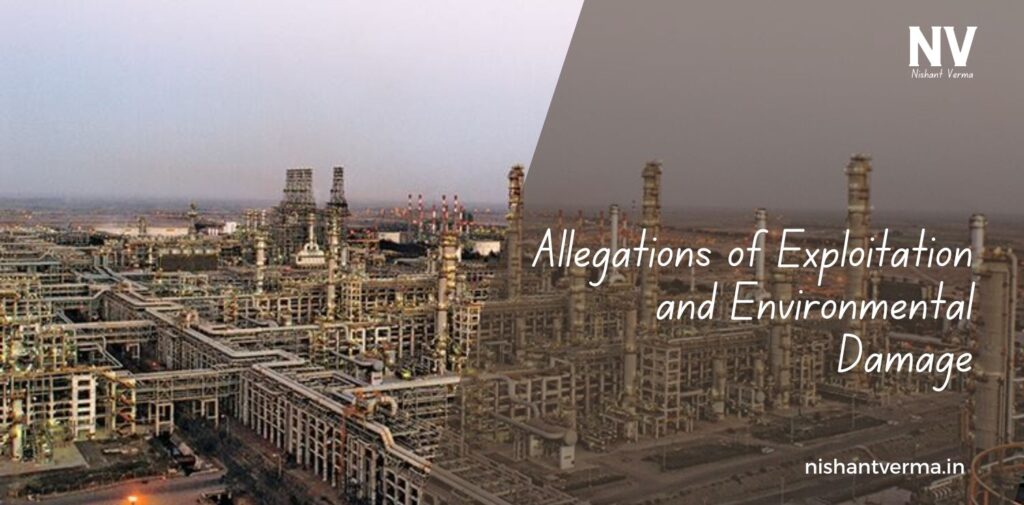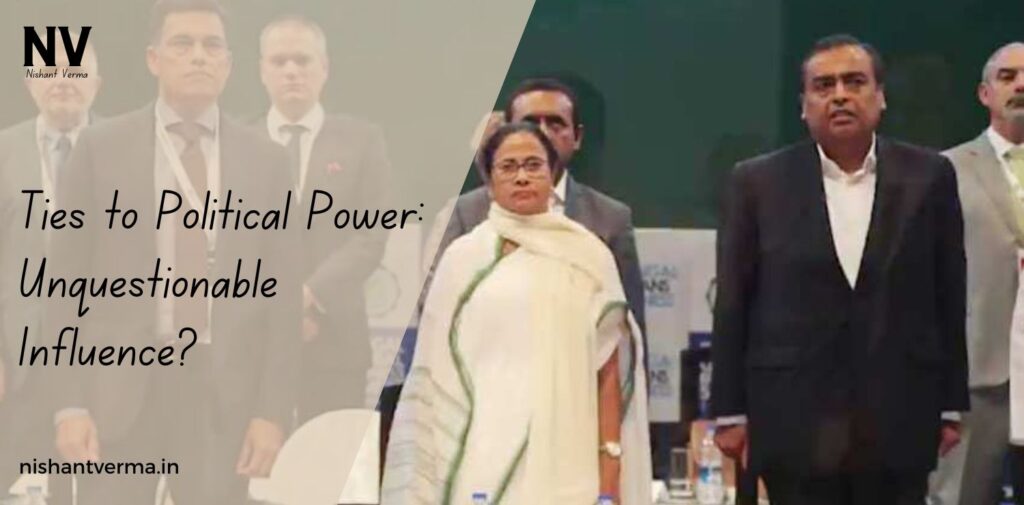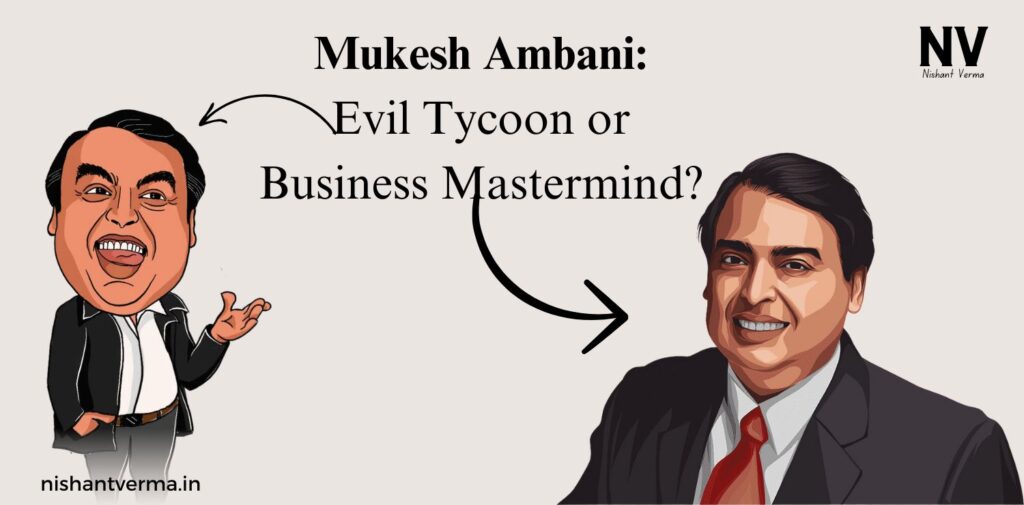Mukesh Ambani, the chairman of Reliance Industries, is a figure who evokes a range of emotions across India. For some, he represents the pinnacle of entrepreneurial success and corporate genius, while for others, he symbolizes the growing divide between the rich and the poor. He has become a polarizing figure, often sparking debate about whether his rise is one of brilliance or opportunism—or perhaps a mix of both. Is Mukesh Ambani an evil, power-hungry tycoon driven by greed, or is he a visionary mastermind, strategically shaping India’s business landscape for the better?
This article will explore both sides of the argument, with a deeper dive into his alleged “evil” tendencies while highlighting moments that could support his image as a mastermind. By the end, you decide: is Mukesh Ambani truly evil, or is he merely a product of the hyper-competitive, capitalist world he operates in?
The Power of Wealth: A Symbol of Excess?
Mukesh Ambani’s immense wealth and extravagant lifestyle often form the basis of criticism against him. His 27-story private residence, Antilia, standing in stark contrast to the slums of Mumbai, is often seen as a symbol of the vulgar inequality in India. The billions of dollars spent on pre-wedding celebrations for his children, which included global celebrities and international performers, only heightened public outrage. The extravagance of these events, as witnessed in lavish celebrations like Anant Ambani’s wedding, sets an unsettling precedent in a country where millions live below the poverty line. Many argue that such public displays of wealth fuel resentment and contribute to the perception that India’s rich are entirely disconnected from the struggles of ordinary citizens.
Some view this as more than just a lifestyle choice. Critics claim that such ostentatious spending, especially on public platforms, serves as a reminder of Ambani’s near-monopoly over vast sections of the economy, reinforcing his domination in sectors from telecommunications to retail. These celebrations, in some eyes, are not just personal milestones but political and business maneuvers designed to showcase power, prestige, and the inability of others to compete with his wealth.
However, Ambani has occasionally attempted to show his charitable side, such as organizing mass weddings for underprivileged couples. Still, the contrast between his monumental wealth and these gestures leads many to question his intentions. Is this generosity a genuine act of goodwill or simply a public relations exercise meant to soften his public image?

Jio: Business Innovation or Ruthless Tactics?
One of Mukesh Ambani’s most significant contributions to India’s economy was the launch of Reliance Jio in 2016. Jio revolutionized the telecommunications industry, offering dirt-cheap data plans and free voice calls, which brought millions of Indians online and significantly reduced data costs. On the surface, this may appear as an act of corporate brilliance, leveling the playing field for small businesses, individuals, and rural populations who previously couldn’t afford mobile internet access. It transformed India into one of the largest data consumers globally.
But beneath this innovative success lies a darker narrative. Ambani’s aggressive pricing strategy decimated many of his competitors, forcing established players like Vodafone and Idea to merge, and others, such as Airtel, to scramble for survival. Some argue that Jio’s disruption of the telecom industry was less about fostering innovation and more about monopolizing the market. By initially providing services at a loss to drive out competitors, Ambani used predatory pricing to consolidate power and create a near-monopoly. Once his competitors were crippled, Jio began to raise prices, showing how Ambani’s moves were not solely about benefiting the masses but also about asserting control.
Furthermore, his relationships with political powers have only intensified suspicions. Critics allege that his ability to operate with minimal regulatory pushback, even in highly competitive sectors, suggests undue influence. Ambani’s close ties with influential political figures raise the question: is he truly just a savvy businessman, or is he using his connections to rig the game in his favor?
Allegations of Exploitation and Environmental Damage
Reliance Industries has long been under scrutiny for its environmental practices, especially regarding oil and gas exploration. Accusations have been made that the company’s operations lead to significant environmental degradation, including air and water pollution. Critics argue that Ambani prioritizes profit over sustainability, contributing to the destruction of ecosystems while maintaining a corporate image of innovation and progress.
The Ambani empire has also been accused of exploiting labor through unfair working conditions in its various ventures, especially in the retail sector. Workers employed by Reliance’s vast network of stores and subsidiaries have occasionally reported mistreatment, including low wages and long hours. This raises ethical concerns about whether Ambani’s success is built on the backs of an exploited workforce.

In contrast, defenders of Mukesh Ambani point to the massive number of jobs created by Reliance and its various offshoots. From telecommunications to retail, the company has provided employment to millions of Indians, driving economic growth. However, the question remains whether the benefits outweigh the costs, especially when considering the company’s environmental footprint and alleged treatment of workers.
Ties to Political Power: Unquestionable Influence?
One cannot discuss Mukesh Ambani without touching on his close ties to the political elite in India. His influence over political circles has been a long-standing point of contention, with allegations that he has shaped policies in his favor. His proximity to power often leaves people wondering if his business empire flourishes at the expense of true competition and fairness.
Some have speculated that his meteoric rise in business coincided with favorable policies passed by governments, both at the state and national levels. These speculations gained traction when policies that directly benefited Ambani’s companies were implemented. For instance, the telecom spectrum allocation and regulatory frameworks surrounding the oil industry often seemed tailor-made for Reliance. This relationship between wealth and power has fueled claims that Ambani operates not only as a businessman but also as a kingmaker in Indian politics, further entrenching his dominance in the economy.

The Mastermind Narrative: A Visionary for India’s Growth?
On the other side of the spectrum, many see Mukesh Ambani as a genius who has played the capitalist game exceptionally well. His aggressive strategies, from launching Jio to expanding Reliance into new sectors like retail and media, have undeniably shaped India’s economic landscape. Ambani has an unparalleled ability to identify opportunities in seemingly saturated markets and disrupt them with innovations that reshape industries. His business acumen has positioned India as a global player in the digital and energy sectors, driving growth and creating opportunities for millions.
Moreover, some argue that Ambani’s wealth and influence have allowed him to bring India closer to the world stage. His deals with international companies like Facebook and Google have not only boosted Reliance but also opened up India’s digital economy to foreign investment. Supporters claim that Ambani is using his immense power for the greater good, pushing India into a new era of digital transformation and self-reliance.
Final Thoughts: Mukesh Ambani: Evil Tycoon or Business Mastermind?
Ultimately, the perception of Mukesh Ambani as evil or a mastermind depends on how one interprets his rise to power. While it is undeniable that his tactics have crushed competitors, he has also ushered in a digital revolution that has had a profound impact on India’s economy and society.
But where do we draw the line between brilliance and exploitation? Has Ambani, like many other billionaires around the world, simply mastered the art of capitalism, or has he overstepped ethical boundaries in pursuit of unchecked power and wealth? What do you think—do you see Mukesh Ambani as an evil force, or is he simply playing the business game as it is meant to be played? Share your thought




